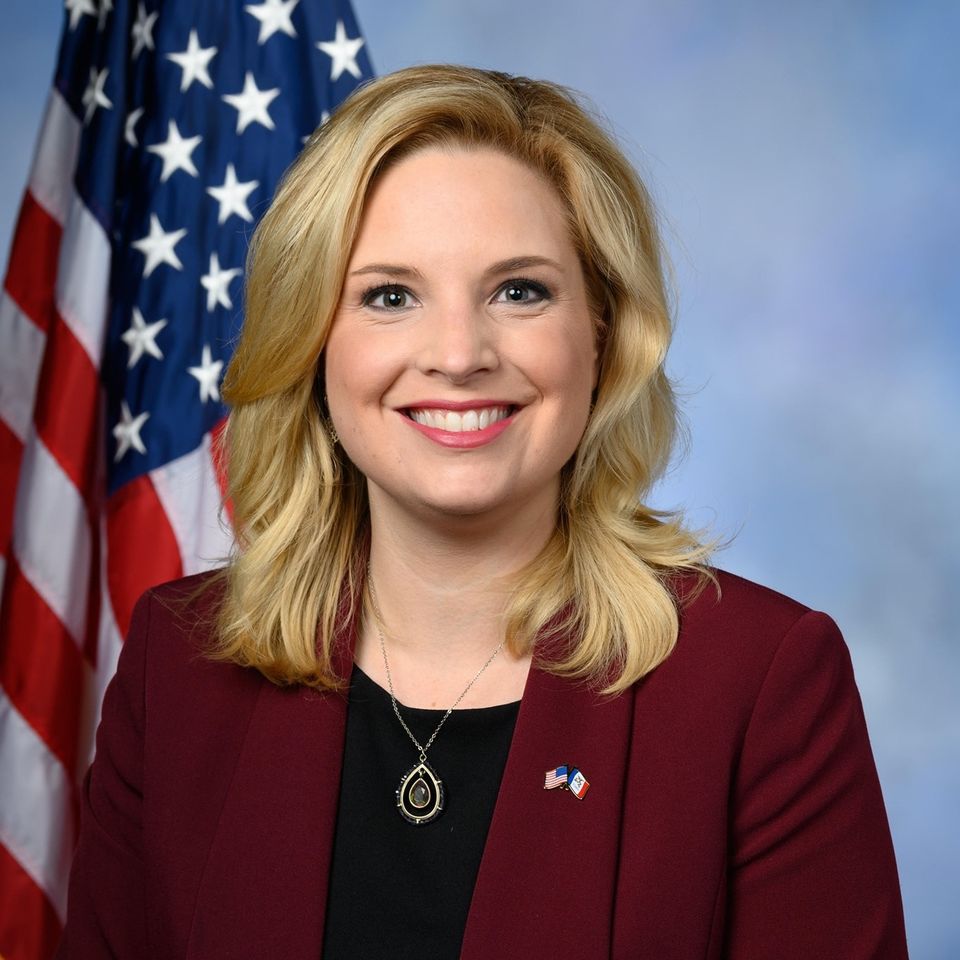On Tuesday, Congresswoman Ashley Hinson (IA-01), alongside Congressman Rodney Davis (IL-13), Congresswoman Angie Craig (MN-02), and Congressman Ron Kind (WI-03), introduced the bipartisan Defend the Blend Act, legislation to prohibit the U.S. Environmental Protection Agency (EPA) from reducing the minimum applicable volume of biofuels into transportation fuel once the Renewable Volume Obligations (RVO) levels are finalized for any given year. This would prevent the EPA from retroactively reducing 2020 RVO levels.
“Rumors abound that the EPA is going to retroactively reduce biofuel blending requirements for 2020—before they’ve even set levels for 2021 and 2022; this would be detrimental to Iowa’s biofuel industry. My bipartisan bill will hold the Administration accountable for maintaining the integrity of the Renewable Fuel Standard and give biofuel and ethanol producers the certainty they deserve,” said Congresswoman Ashley Hinson.
“The integrity of the Renewable Fuel Standard is critical for family farmers and rural communities across my district and the state of Minnesota,” said Congresswoman Angie Craig. “The bipartisan Defend the Blend Act will make it very clear to this Administration and all future Administrations: retroactive changes to Renewable Volume Obligations that benefit the fossil fuel industry have no place in the RFS. We must provide certainty for family farmers and the biofuels industry, not instability.”
“10 months into his presidency, President Biden has yet to keep his campaign promise to the American farmer on supporting the Renewable Fuel Standard, which leads me to believe that he might break that promise. That would be a disaster for farmers and the biofuels industry. It’s time for Congress to step up and prohibit the EPA from undermining the RFS blending requirements, which we can do with Congresswoman Hinson’s bipartisan ‘Defend the Blend Act,’” said Congressman Rodney Davis.
“Our agriculture and biofuel industries are not only the backbone of our economy here in Wisconsin, but they also feed and fuel the world. Especially as we work to build back from the COVID-19 pandemic, we need to make sure we provide certainty for our biofuel producers and family farmers across Wisconsin and ensure the EPA upholds its requirements under the RFS,” said Congressman Ron Kind.
“The EPA itself has consistently said it does not possess the authority to reopen and modify finalized RFS rules. We strongly agree. The marketplace needs certainty. If the EPA is going to consider illegal actions like this, we really appreciate Congresswoman Hinson’s bill to make it crystal clear that a final RFS rule is just that – final,” said the Iowa Renewable Fuels Association.
“NBB and its members thank Congresswoman Hinson, Congresswoman Craig, Congressman Davis, and Congressman Kind for leading this effort to ensure reliability, certainty and timeliness in RFS volumes. If the EPA lowers previously set rules, it will destroy demand for biodiesel and renewable diesel, hobble small biofuel producers, and undercut the nation’s goals to create jobs and a cleaner environment,” said Kurt Kovarik, National Biodiesel Board’s Vice President of Federal Affairs.
“Corn growers appreciate Congresswoman Hinson, Congresswoman Craig, Congressman Davis, and Congressman Kind and cosponsors of this legislation standing up for the integrity of the Renewable Fuel Standard. The purpose of the RFS is to move biofuel blending forward, not revisit the past and reward the use of more oil instead of cleaner renewables like ethanol. When it comes to lowering fuel prices and cutting emissions, farmers are a big part of the solution. We count on a strong RFS to help support use of ethanol,” said Chris Edgington, President of the National Corn Growers Association.
“We thank Reps. Hinson, Craig, Davis, Kind, and the co-sponsors of this bill for their efforts to ensure both oil refiners and EPA are being held accountable. The Renewable Fuel Standard was intended to provide long-term market certainty and predictability for our nation’s ethanol producers, farmers, fuel retailers, and other market participants. Retroactively slashing renewable volume obligations long after they have been set would throw the RFS program into turmoil and reward a small group of defiant oil refiners for their bad behavior. RFA strongly supports this bill because it would prevent refiners from rigging the game and it would keep EPA from moving the goalposts,” said Geoff Cooper, President and CEO of the Renewable Fuels Association.
“We thank Representatives Ashley Hinson, Angie Craig, Rodney Davis, and Ron Kind for introducing the Defend the Blend Act, legislation that would offer more certainty in the marketplace, especially as we await the 2021 and 2022 RVOs from EPA,” said Growth Energy CEO Emily Skor. “The Renewable Fuel Standard was put into place to blend more low-carbon biofuels into our nation’s transportation fuel supply and includes a built-in mechanism that adjusts for any changes in fuel demand. Retroactively changing RVO levels is completely unwarranted. It is unnecessary, adds uncertainty to the marketplace, and far exceeds EPA’s legal authority.”
This legislation has been endorsed by: American Farm Bureau, Growth Energy, POET, ADM, Renewable Fuel Association, National Corn Growers Association, National Biodiesel Board, Green Plains, National Farmers Union, Iowa Farm Bureau, Iowa Renewable Fuel Association, and Iowa Soybean Association.












